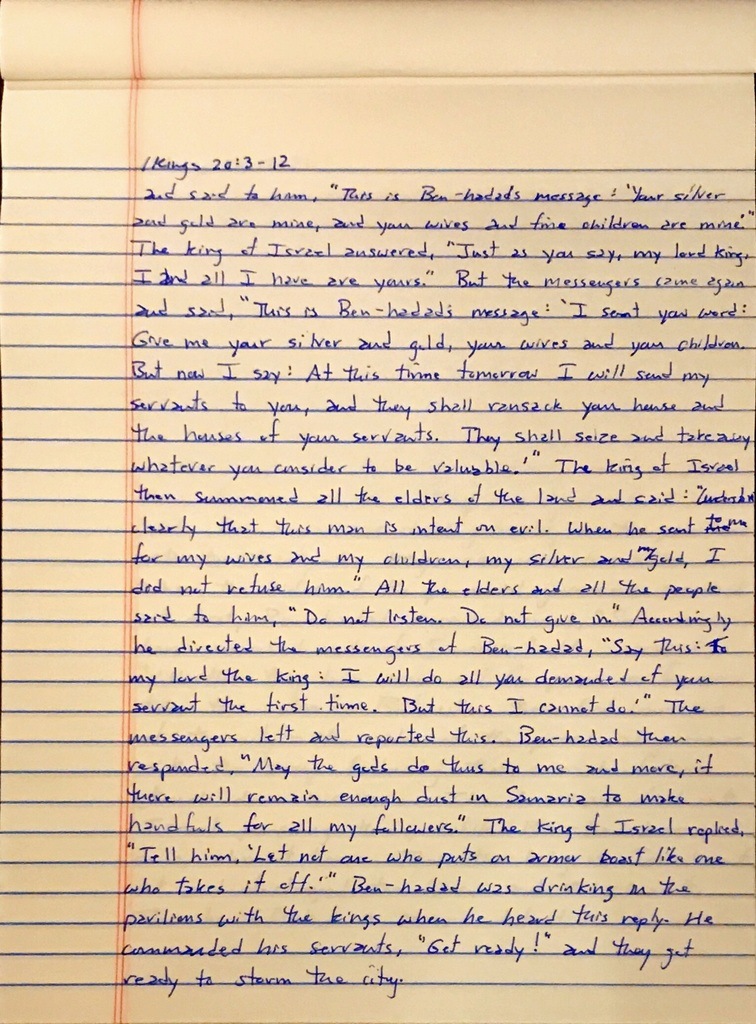
Smack Talk & God’s World

Synopsis 1Kings 20:3-12 6/18/2019
Ben-hadad was the King of Aram. At one point during the reign of King Ahab, he brought his army into Israel to besiege the city of Samaria. As the siege went on, Ben-hadad sent messengers to Ahab.
Basically, the Aramite king demanded that King Ahab give up everything he owned. And Ahab agreed. But even after this, Ben-hadad made more and greater demands.
This made Ahab realize that appeasement would not work. So, he conferred with the tribal elders. And they all agreed that a fight was unavoidable even though the city was greatly outnumbered.
So, Ahab sent word to Ben-hadad rejecting his demands. Accordingly, both sides prepared for battle.
Putting On The Armor
Beh-hadad had forced a fight by making untenable demands on Ahab. And then, in a final exchange of messages, he vowed that he would destroy Samaria. In fact, he spoke of annihilating the city so thoroughly that there would be nothing left for his men to take as loot.
For his part, Ahab responded by making his famous quip, “Let not one who puts on the armor, boast as one who takes it off”. Though this reads like a desperately clever dig at an overwhelming enemy, it also revealed a deeper truth. No matter how great an army might be, no force is invulnerable. And no human purpose can succeed against God.
Talking Smack in God’s World
It’s funny. On the playground my childhood friends and I use to call this kind of boastful banter “talking smack”. It didn’t really matter what the sport. We boasted about who was going to beat who in any and every sports competition. We were boys. So, before the game we talked smack. And during the game we talked smack. Even after the game, we talked about future smack – how it was going to be the “next time”.
It’s interesting. Though it was all just child’s play, there’s still something unfortunate about the habit of making a promise without the certain ability to follow through. My words begin to mean less – they have less worth. In such moments, I feel less bound to the things I say. There’s a certain danger to forming this habit.
Better to let my yes be yes and my no, be no. Better to take constructive action than to fill the air with words.
Come now, you who say, “Today or tomorrow we shall go into such and such a town, spend a year there doing business, and make a profit”— you have no idea what your life will be like tomorrow. You are a puff of smoke that appears briefly and then disappears. Instead you should say, “If the Lord wills it, we shall live to do this or that.” James 4:13-15

